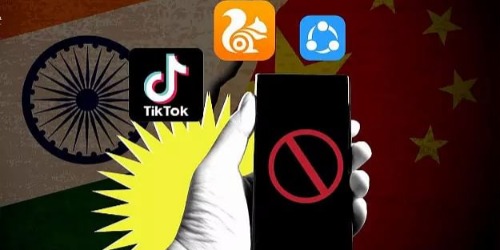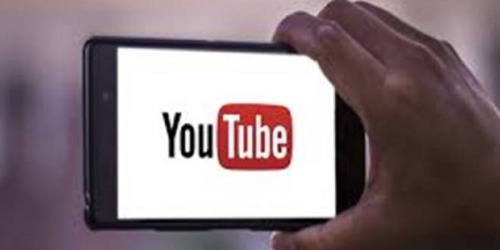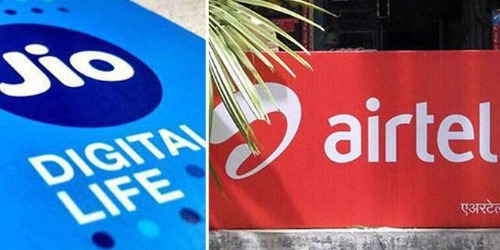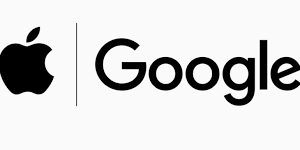Government Bans 59 Chinese Apps Including Tik-Tok, Shareit, UC Browser, and WeChat

TikTok has been banned by the Government, along with 58 more apps including Shareit, UC Browser, WeChat, and others. The common factor to these various apps? They're all made by Chinese companies. The government in its notice stated that these apps are prejudicial to sovereignty and integrity of India, defence of India, security of state, and public order.
As per a release from the Ministry of Electronics and IT (MEITY), the ministry has blocked the apps under the provisions of Section 69 of the IT Act, as well as provisions of the IT rules 2008, saying, “in view of information available they are engaged in activities which is [sic] prejudicial to sovereignty and integrity of India, defence of India, security of state and public order.” Reportedly, MEITY has issued orders for Google and Apple to ban these 59 apps in 24 hours.
A closer look at the 59 apps shows that the common thread is their Chinese-origin, but otherwise it is a very diverse set. Aside from TikTok, which is probably the best known app in the list, it includes Shein, an online apparel retailer, Shareit and ES File Explorer, which are used to transfer and manage files, Helo and Likee, which are social networks very similar to TikTok, news aggregator Newsdog, popular browser UC Browser, and strategy game Clash of Kings.
Many companies on this list were among those which had donated to the PM Cares fund, as highlighted by Congress leaders on Sunday. TikTok had given Rs. 30 crores to the fund, while Xiaomi, which has two apps on the banned list, donated Rs. 10 crores.
It's a very mixed list, and it's not clear how it was compiled. In the release, MEITY notes, “The Ministry of Information Technology has received many complaints from various sources including several reports about misuse of some mobile apps available on Android and iOS platforms for stealing and surreptitiously transmitting users' data in an unauthorised manner to servers which have locations outside India. The compilation of these data, its mining and profiling by elements hostile to national security and defence of India, is a matter of very deep and immediate concern.”
According to MEITY, it has included representations from citizens to the Computer Emergency Response Team (CERT-IN) and also bipartisan concerns about apps raised both outside and inside the parliament.
TikTok was in the news recently for “snooping” on users' clipboards, which was uncovered by the latest iOS 14 update that is currently a beta for developers. The app has long been seen as potentially overreaching in the data being collected. However, TikTok is not unique in this, and neither are apps from China. One of the biggest data scandals of our times is how Cambridge Analytica used data from Facebook to influence political campaigns.
The Internet Freedom Foundation, an advocacy to advance constitutional freedoms in a digital society responded to the government's release with a statement. It said that this was not a legal order issued under Section 69A of the IT Act. It added that the blocks had been directed in an aggregated manner, while the section is individualised in nature. “The Blocking Rules, 2009 specifically provide for a defined process of notice, hearing and a reasoned order. These processes emerge from the Shreya Singhal judgement and apply to all grounds for blocking, including those premised on national security,” the IFF explained.
Reportedly, MEITY has asked the Department of Telecommunications (DOT) to order telecom companies and Internet Service Providers to block access to these apps, which is how the current apps could be made to stop working, apart from removing them from app stores so that they cannot be downloaded.
TikTok has previously been blocked in India — it was removed from the two stores last year — but later restored. Some months later, both TikTok and Helo faced a ban over “anti-national activities”, but in this case it was able to keep going.
The current ban is likely related to the conflict between India and China and it's therefore less clear if it will be as easy to resolve as in the past. Anti-China sentiment has seen the Make in India manufacturing units of companies like Oppo get defaced, and the brand had to reconsider holding a live launch event for one of its latest phones in the country.
All one can say for certain is that the current ban comes as a big opportunity to apps that are made in India, from Mitron to Chingari.
The entire list of 59 apps was included as an Annexure and it includes everything from chat apps, to tools such as ES File Explorer, to games. It's hard to understand why these specific apps were chosen. The full list of banned apps is as follows.
- TikTok
- Shareit
- Kwai
- UC Browser
- Baidu map
- Shein
- Clash of Kings
- DU battery saver
- Helo
- Likee
- YouCam makeup
- Mi Community
- CM Browser
- Virus Cleaner
- APUS Browser
- ROMWE
- Club Factory
- Newsdog
- Beutry Plus
- UC News
- QQ Mail
- Xender
- QQ Music
- QQ Newsfeed
- Bigo Live
- SelfieCity
- Mail Master
- Parallel Space
- Mi Video Call — Xiaomi
- WeSync
- ES File Explorer
- Viva Video — QU Video Inc
- Meitu
- Vigo Video
- New Video Status
- DU Recorder
- Vault- Hide
- Cache Cleaner DU App studio
- DU Cleaner
- DU Browser
- Hago Play With New Friends
- Cam Scanner
- Clean Master — Cheetah Mobile
- Wonder Camera
- Photo Wonder
- QQ Player
- We Meet
- Sweet Selfie
- Baidu Translate
- Vmate
- QQ International
- QQ Security Center
- QQ Launcher
- U Video
- V fly Status Video
- Mobile Legends
- DU Privacy
- 0
- Leave a comment
YouTube likely to come up with TikTok-like short video platform

YouTube is all set to come up with a new feature that would take on the popular short video platform, TikTok. The Google-owned video platform is testing a new feature on its app which would let users create and post a 15-second video on the app, pretty similar to the Bytedance-owned short video app. YouTube is currently experimenting with the feature and there can be a mass rollout only when the testing is over. Back in April, it was first reported that YouTube is working on the TikTok-like app.
Youtube announced testing the feature on its support website. "We're testing out a new way for creators to easily record multiple clips directly in the YouTube mobile app and upload as one video. If you're in this experiment, you'll see an option to 'create a video' in the mobile upload flow. Tap or hold the record button to record your first clip, then tap again or release the button to stop recording that clip. Repeat these steps until you're done capturing footage up to a maximum length of 15 seconds. If you'd like to upload a longer video, you'll still be able to do so by uploading from your phone gallery instead of recording through the app. We're starting these experiments on mobile (both Android and iOS) with a small group of people while we gather feedback."
Not much has been divulged about the upcoming app by YouTube. There is no clarity on whether the app would get filters and music support like TikTok. Users can post through the YouTube app and it would be made available for both Android and iOS users. So far only limited users have received the feature and only when the team is done testing the app, it would be made available for the larger audience.
Earlier in April, the information reported that YouTube might call their TikTok like the app, Shorts. The report stated that it won't be a standalone app as it would be integrated into the main Youtube app. The Shorts users will have an added advantage over TikTok as they will be able to use licensed music that is available on YouTube. They can select the audios and use them in their videos.
However, this isn't the first time that YouTube has tried to imitate a feature of other social media platforms. YouTube had earlier developed a Snapchat-Instagram like Stories feature, which is called Reels. Apparently, Facebook too is working on a TikTok like an app that reportedly is called Lasso and is still under development, as per The Information.
Coronavirus: Animal healthcare manufacturer joins hands with IIT to develop vaccine

Ahmedabad-based Hester Biosciences, a leading animal healthcare and second largest poultry vaccine manufacturer in India, has joined hands with the Indian Institute of Technology (IIT), Guwahati to develop a vaccine for Covid-19. Hester becomes the 8th Indian company to attempt a Covid-19 vaccine after Serum Institute, Zydus Cadila, Bharat Biotech, Indian Immunologicals, Biological E, CCMB Hyderabad and IISc Bangalore with Mynvax, Bangalore.
The vaccine will be based on recombinant avian paramyxovirus based vector platform, which has been used in the past as a vaccine vector for various animals and human pathogens such as HIV, avian influenza virus, human parainfluenza virus, SARS-CoV and many other infectious diseases like Nipah. The partners are hoping to have a vaccine candidate ready for animal trials by end of the year and enter human trials during next year, said Rajiv Gandhi, CEO and MD, Hester Biosciences.
"While our involvement would be from master seed development up to release of the commercial vaccine, the IIT team headed by Dr. Sachin Kumar, Associate Professor, Department of Biosciences and Bioengineering, is to produce the recombinant vaccine candidate. It is early to fix the timelines," said Rajiv Gandhi. This will be the first initiative from Hester to develop a human vaccine.
Being in veterinary vaccine manufacturing, as well as working towards developing recombinant vaccines, Hester has a fairly good understanding and the capability to get into human vaccines, he said.
Coronavirus lockdown: Airtel, Reliance Jio to make money as internet use booms 30%

Telecom is one of the few sectors that stand to gain in the current lockdown. How? Ask Mumbai-based Somya Gupta who works with US-based Azul Arc International as designer. Ever since the lockdown started, Gupta shifted her office desktop to her home where she's working almost eight hours every day. Gupta says the reason for shifting desktop to her home - rather than working on her laptop - is because she has to work over a licensed software that's available at her office desktop only. Because her intricate designing involves working on heavy files, primarily images, her usage of home broadband has grown tremendously. "I used to have 10 mbps (megabits per second) plan earlier for which I was roughly paying Rs 500 per month. Now I have upgraded to 40 mbps speed plan with unlimited data at the cost of Rs 2,100," she says.
Twenty-four-year old Gupta is one of the many professionals who have been working from homes over the past 40-50 days as corporates ask staff to work under the safety of their homes in the wake of coronavirus pandemic. As per ratings agency CRISIL, the data usage has gone up 25-30 per cent since the lockdown began on March 25. "The COVID-19 driven lockdown has come as a Godsend to the fixed broadband sector, which has been stagnating with subscribers at 18-19 million since 2016 because of the intense price war in the mobile telephony space. But now, subscriptions to fixed broadband, especially in the urban areas, have surged because millions are working from home," says a CRISIL report.
But the downside of the higher consumption has resulted in slower data speeds. Recently, Ookla, a US-based mobile and broadband network intelligence firm, said that the fixed broadband download speed in India reduced to 35.98 Mbps in March as compared to 39.65 Mbps a month ago. CRISIL said that the mobile internet speed too declined by 1 Mbps between February and March.
The Indian broadband data consumption pattern is in line with the global trend. Initially, there were fears expressed by WEF (World Economic Forum) that spike in data consumption might result in breaking of the internet with operators like Vodafone that operates in over 65 countries. It witnessed 50 per cent surge in data traffic in some markets. Not just data, a recent global study by Ericsson indicates 20-70 per cent rise in voice traffic, including India, across networks with users making frequent and longer voice calls due to the coronavirus situation. However, the fears were allayed by ISPs (internet service providers) and telcos who assured users and the government of having sufficient capacities to handle data surge.
At the moment, the price of accessing data in fixed and mobile broadband is almost similar. For instance, the per GB (gigabyte) price for fixed broadband is Rs 6 as compared to Rs 5.4 for mobile internet. Last year, telcos across the board hiked mobile tariffs for prepaid subscribers by 20-50 per cent in an attempt to increase their low APRUs (average revenue per user). "The usage in fixed broadband consumption is definitely going to drive up the revenues for telcos, but despite the rise in consumption of mobile broadband, the average APRU increase would not be substantial since there's going to be loss of subscribers in the prepaid segment, and higher data allowances by telcos," says a telecom analyst.
As per telecom regulator TRAI, India had a total of 688 million broadband subscribers (in September) out of which just 22.26 million were fixed broadband subscribers. The top broadband players (wired and wireless) are Reliance Jio (355.93 million), Bharti Airtel (127.83 million), Vodafone Idea Ltd (112.19 million), and BSNL (21.52 million). In fact, India's fixed broadband penetration at 6 per cent is significantly lower as compared to other countries. The comparable numbers in Japan are 80 per cent, 75 per cent in the US, 70 per cent in Eurozone, and 55 per cent in China.
Apple, Google join hands to develop COVID-19 tracking tool

Tech giants Apple and Google announced on Friday that they are collaborating to build a Bluetooth-based COVID contact tracing platform that informs people when they have come in contact with a coronavirus-infected person. The collaboration would help health officials track the spread of the disease without violating the user's privacy.
"Since COVID-19 can be transmitted through close proximity to affected individuals, public health officials have identified contact tracing as a valuable tool to help contain its spread. A number of leading public health authorities, universities, and NGOs around the world have been doing important work to develop opt-in contact tracing technology. To further this cause, Apple and Google will be launching a comprehensive solution that includes application programming interfaces (APIs) and operating system-level technology to assist in enabling contact tracing. Given the urgent need, the plan is to implement this solution in two steps while maintaining strong protections around user privacy," the joint statement by Apple and Google read.
Google and Apple are working on application programming interfaces (APIs) and operating system-level technology to assist in enabling contact tracing. The APIs would allow iOS and Android to exchange information and make use of them. The Apps once released by Apple and Google will be available for download in the App Store and Play Store
So once the feature is implemented, whenever two people come in contact with each other, their phones will exchange an identification key. However, if one of them contracts the COVID-19, he can let others know about it through the app. The system will then inform other users who have been in contact with the infected person, so they can either get tested for coronavirus or self-quarantine till the results are out. All this would be done without revealing your name or any other data as the tech giants had promised complete privacy. You will not be told about the person who has contracted the coronavirus, you will be simply notified that you have come in contact with a COVID-19 positive person.
India currently has an Aarogya Setu app that can help the officials in contact tracing. However, due to the absence of API's currently, there cannot be any interoperability between Android and iOS devices. But once Google and Apple implement the feature, things might be a little different. The tech giants plan to launch the platform in two phases, the first launch might take place somewhere in mid-May.
"Second, in the coming months, Apple and Google will work to enable a broader Bluetooth-based contact tracing platform by building this functionality into the underlying platforms. This is a more robust solution than an API and would allow more individuals to participate if they choose to opt-in, as well as enable interaction with a broader ecosystem of apps and government health authorities. Privacy, transparency, and consent are of utmost importance in this effort, and we look forward to building this functionality in consultation with interested stakeholders. We will openly publish information about our work for others to analyze, " the joint statement read.


